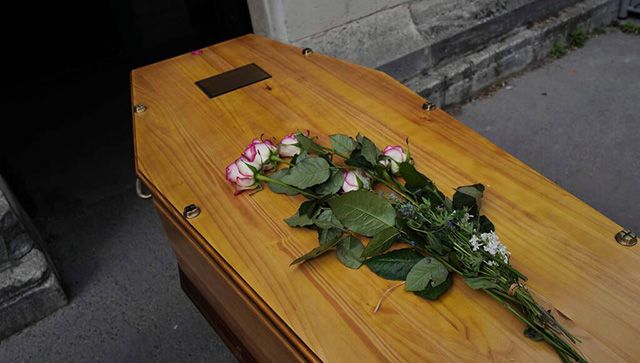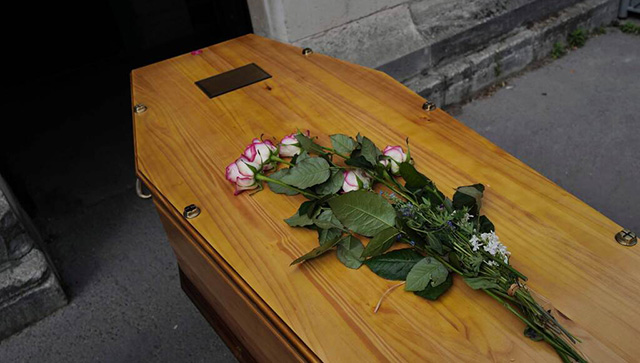Photos: Awaiting death and nirvana at Salvation House, Varanasi
Photos: Awaiting death and nirvana at Salvation House, Varanasi
Parag Shinde
• July 25, 2014, 14:11:58 IST
The city of Varanasi, on the banks of the River Ganges, is widely considered Hinduism’s holiest city and many Hindus believe that dying there and having their remains scattered in the Ganges allows their soul to escape a cycle of death and rebirth, attaining “moksha” or salvation. “Mukti Bhavan” or “Salvation House”, is a charity-run hostel that caters for people who wish to come to Varanasi to die. Guests can normally stay up to two weeks after which, if they haven’t yet passed away, they are gently asked to leave.
Advertisement
)
Find us on YouTube






)
)
)
)
)
)
)
)